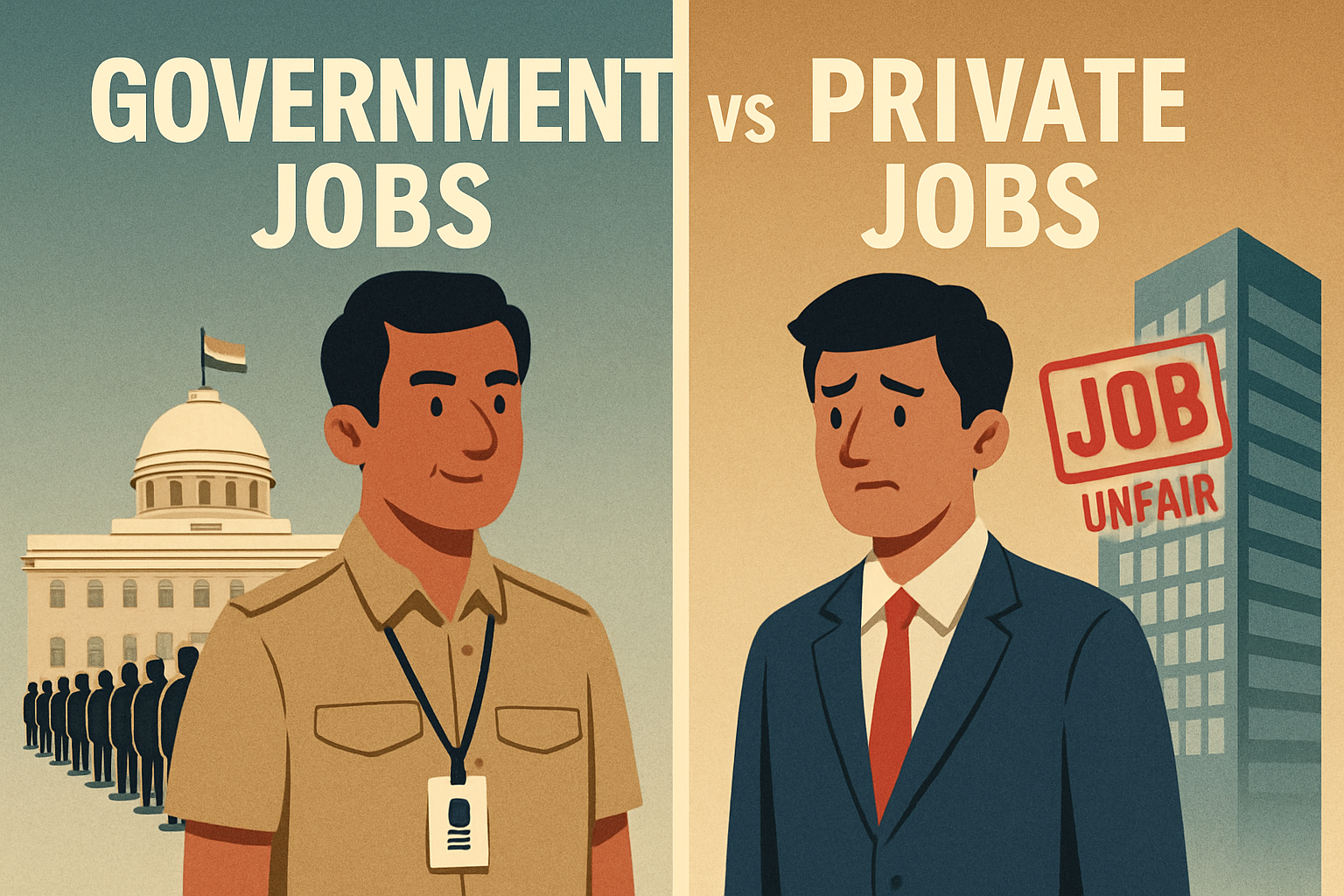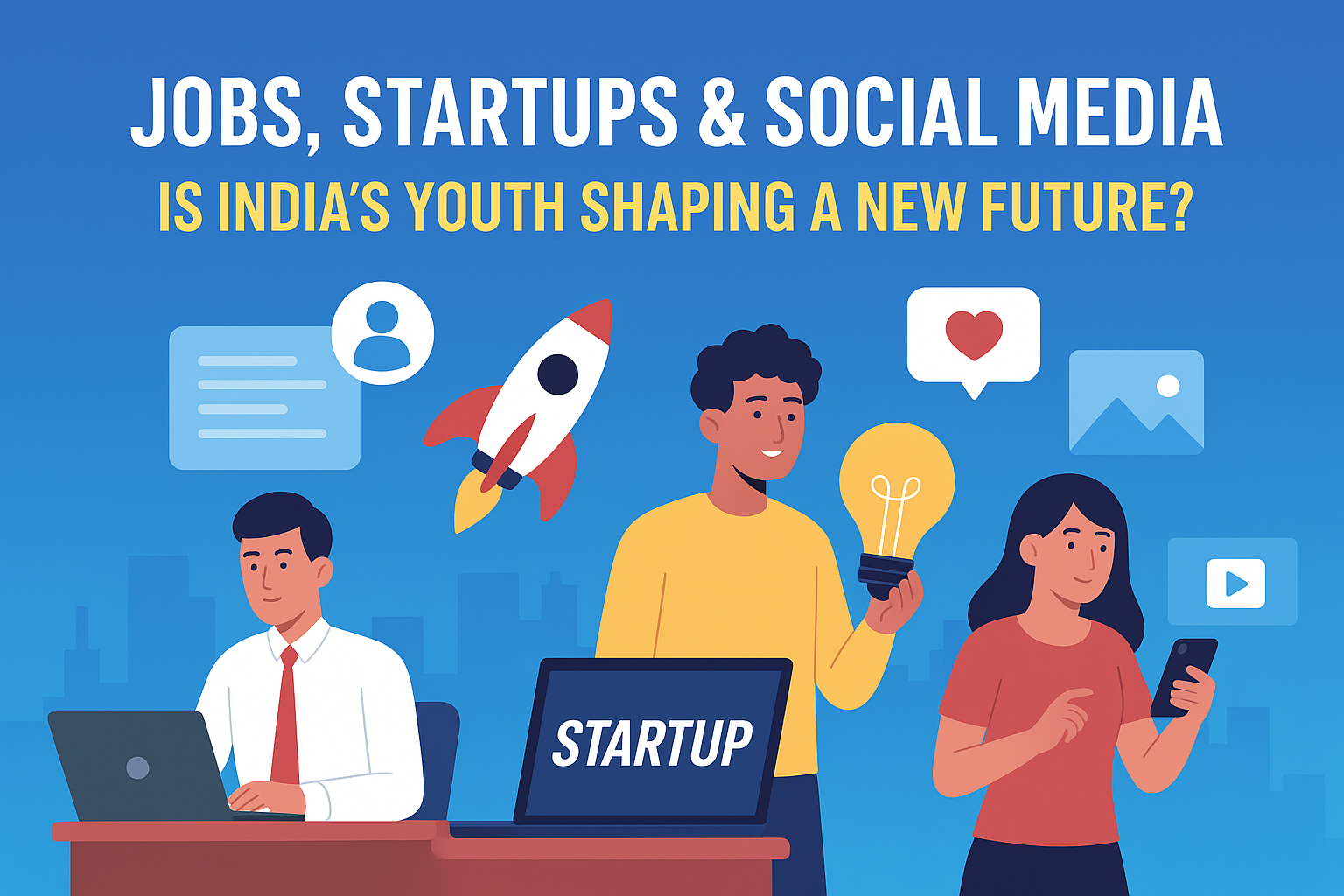Government vs Private Jobs: A Harsh Reality
In India, jobs are broadly classified into two categories — government and private. Government jobs are known for their security and stability. Once selected, it's extremely difficult for someone to be removed from the position. Especially in states like Uttar Pradesh and Bihar, government employees are treated with utmost respect and admiration, especially those holding higher designations.
However, in terms of salary and perks, private jobs can offer more lucrative packages. Many private sector roles — especially in corporate, tech, and multinational companies — offer better pay, modern infrastructure, and quicker growth opportunities. But there's one catch — job security. In private companies, termination can happen suddenly, sometimes without proper justification. One email or a short notice is enough to change someone’s life overnight.
This comparison has always sparked debate. Let’s understand both sides with honesty and ground reality.
The Tough Ground of Government Jobs
With a huge population and limited job opportunities, competition for government positions in India has become extremely tough. Every year, lakhs of students appear for various entrance and competitive exams, hoping to secure a stable government job. Most of them start preparing right after class 12th, not because they genuinely wish to, but because they have no other choice.
Many students come from lower-middle-class families. For them, affording private college education, coaching institutes, or even thinking about starting a business is beyond reach. In such cases, government jobs seem like the only ray of hope to uplift their family’s economic status and ensure a dignified life.
But what do these students face? Poor exam systems, frequent paper leaks, scams, recruitment delays, and sometimes years of waiting. The emotional toll is unimaginable. Suicides and depression among youth who fail repeatedly — not because of their lack of effort but due to systemic issues — are deeply concerning. Education is now more of a business, and recruitment is often politicised.
Private Jobs: A Second Option, But Not Always Fair
When government jobs become unreachable, private jobs become the second hope. They welcome both skilled and semi-skilled individuals. If a person learns a trade, develops a talent, or becomes an expert in a particular domain, there are ample opportunities. The IT sector, e-commerce, manufacturing, and service industries are constantly evolving and hiring.
In fact, roles like software developers, data analysts, and cybersecurity experts are earning packages worth lakhs — even crores — annually. However, this world isn’t perfect either. Nepotism, favoritism, and biased decisions are increasingly common. Vacancies are often filled before they are advertised — not by merit, but by reference.
Even inside companies, deserving employees are ignored for promotions. Some don’t progress because they don’t flatter their superiors or “fit into” the group. Others get promoted for the wrong reasons — due to personal connections, flattery, or even gender biases. This destroys morale and trust in the system.
Imagine how it feels when a hardworking employee watches someone else — less qualified but well-connected — take the opportunity they’ve earned. This hurts more than failure. And those who suffer quietly lose motivation to try again.
A Message to Employers and Managers
Dear employers and managers, always remember — what you’re doing to someone today might be done to you tomorrow. Power and position are temporary, but the impact of your decisions can be permanent. Give jobs and promotions based on talent, not recommendations. Let honesty define your leadership.
Because a job is not just a source of income. It is a source of dignity, stability, and hope. A person sitting at home jobless is silently fighting battles you can’t see. Your biased decisions might become the reason someone gives up on life, or worse, on themselves.
India needs honest hiring practices, fair promotion systems, and leaders who lead with values. Only then can we expect a change — not just in workplaces, but in society itself.
If you are in a position to hire or promote — be fair. Be honest. And be human.





